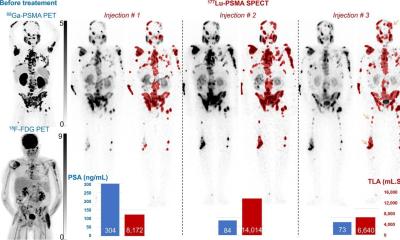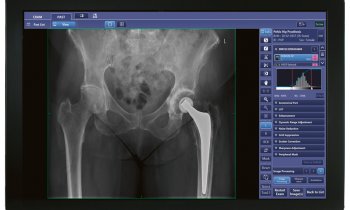News • Accuracy improvement
Predicting prostate cancer with radiomics and machine learning
A team of researchers from the Icahn School of Medicine at Mount Sinai and Keck School of Medicine at the University of Southern California (USC) have developed a novel machine-learning framework that distinguishes between low- and high-risk prostate cancer with more precision than ever before.
Source: Unsplash/Ferdinand Stöhr
The framework, described in a Scientific Reports paper, is intended to help physicians—in particular, radiologists—more accurately identify treatment options for prostate cancer patients, lessening the chance of unnecessary clinical intervention. Prostate cancer is one of the leading causes of cancer death in American men, second only to lung cancer. While recent advances in prostate cancer research have saved many lives, objective prediction tools have, until now, remained an unmet need.
Presently, the standard methods used to assess prostate cancer risk are multiparametric magnetic resonance imaging (mpMRI), which detects prostate lesions, and the Prostate Imaging Reporting and Data System, version 2 (PI-RADS v2), a five-point scoring system that classifies lesions found on the mpMRI. Together, these tools are intended to soundly predict the likelihood of clinically significant prostate cancer(article in German). However, PI-RADS v2 scoring is subjective and does not distinguish clearly between intermediate and malignant cancer levels (scores 3, 4, and 5), often leading to differing interpretations among clinicians.
Recommended article

Article • Post-hypothesis analysis
The mechanics of radiomics
Confirming or infirming hypotheses has long driven scientific research; however, this traditional and costly approach is giving way to data-driven initiatives, according to Prof. Laure Fournier, a leading radiologist at Georges Pompidou European Hospital in Paris. “Usually we formulate the hypothesis first, then take an image and analyze it. We like that in France, it comes from Descartes. The…
By rigorously and systematically combining machine learning with radiomics, our goal is to provide radiologists and clinical personnel with a sound prediction tool that can eventually translate to more effective and personalized patient care
Gaurav Pandey
Combining machine learning with radiomics—a branch of medicine that uses algorithms to extract large amounts of quantitative characteristics from medical images—has been proposed as an approach to remedy this drawback. However, other studies have only tested a limited number of machine learning methods to address this limitation. In contrast, the Mount Sinai and USC researchers developed a predictive framework that rigorously and systematically assessed many such methods to identify the best-performing one. The framework also leverages larger training and validation data sets than previous studies did. As a result, researchers were able to classify patients’ prostate cancer with high sensitivity and an even higher predictive value.
“By rigorously and systematically combining machine learning with radiomics, our goal is to provide radiologists and clinical personnel with a sound prediction tool that can eventually translate to more effective and personalized patient care,” said Gaurav Pandey, PhD, Assistant Professor of Genetics and Genomic Sciences at the Icahn School of Medicine at Mount Sinai and senior corresponding author of the publication alongside co-corresponding author Bino Varghese, PhD, Assistant Professor of Research Radiology at the Keck School of Medicine at USC. “The pathway to predicting prostate cancer progression with high accuracy is ever improving, and we believe our objective framework is a much-needed advancement.”
Source: Icahn School of Medicine at Mount Sinai
08.02.2019










